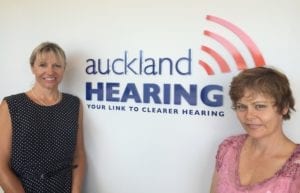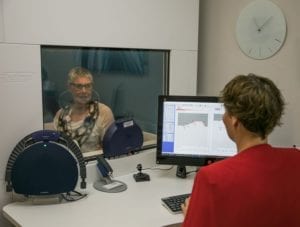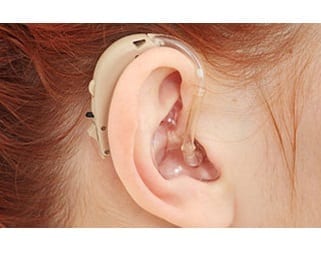

The post Making your decision to get hearing aids appeared first on Auckland Hearing.
]]>
The key to success with hearing aids is: that you have decided for yourself that you are ready to get help with your hearing.
Have you observed or decided some or all of these:
And that you want to do it for you – not to please someone else.

Over the years that your hearing has been gradually changing, so has your brain. The hearing part of your brain has been receiving less sound input, so it has had less information to process. It has forgotten what to do, as it hasn’t had to work so hard. Other parts of your brain have been working harder to try and keep up with the conversation. This can cause auditory fatigue or tiredness at the end of the day.
Luckily, once we provide that missing sound to your hearing system with hearing aids, it can begin to use the information again. Brain plasticity means you can relearn and rewire. Just like when we start on a new exercise program, when we get hearing aids, we need to start slowly and rebuild our “hearing muscles”. As long as it hasn’t been too long and your hearing loss is not too severe, your brain plasticity will mean you will relearn to process the sounds you have been missing and usually, we can get most of your hearing functionality back.

Luckily, hearing aids now have an excellent sound quality, and you will adjust very quickly as long as you wear them all the time and get used to hearing again. Within half an hour, sounds that seemed strange or new when you first put on the hearing aids will begin to normalise.
The key to real success with hearing aids is continual use. You must be ready in yourself to get hearing aids, so you embrace the process for maximum benefit. We want to create a new normal – Normal to hear.
To create a new normal, we are going to ask you to wear your hearing aids as much as you can, from the time you wake up in the morning until you go to bed at night. At first, you may find it tiring. Your brain will have to work hard to process the extra sound that it had forgotten about over the last few years. By the end of the first two weeks, you should be at the point where you can wear your hearing aids all day every day. By the time you finalise your hearing aids, it will feel normal for you to hear.
Usually, we begin the hearing aid fitting process by working out how much sound you require to compensate for your hearing loss, then turning the hearing aids down. The goal at the first fitting is to get the sound comfortable. We want you to wear the hearing aids as much as possible, giving your brain time to adjust to the new sounds. We then gradually turn the sound up over time. This process gives your brain time to adapt and change, keeping sound comfortable at the start and increasing the clarity over time.
You must decide that you need hearing aids for yourself. Once you have chosen to improve your hearing, there will be a short adaption process to go through as you adjust to hearing again.

Max Ross
Auckland City
When you come along for your hearing assessment appointment, we will talk to you about your hearing loss and how it is affecting your life. We will present options to help with your hearing (if required). After this appointment, you will have time to think about and notice those effects as they happen in your everyday life.
You will know when you are ready to take action. You will be ready to:
Ready Now? Follow this link to book your appointment.
Once you have decided to get hearing aids, please give us a call and we will make you an appointment.
Or read on to the next article to find out more about the process of getting hearing aids.

Anna and Maree – At Auckland Hearing
Auckland Hearing is an independent hearing aid and audiology clinic set up by Maree O’Sullivan. Maree
has worked in Audiology for nearly 25 years. She started Auckland Hearing so she could focus on the needs of each client (rather than corporate profits).
We provide a full range of hearing services and work with all of the Ministry of Health approved hearing aid brands in New Zealand. This means we can fit the hearing aids that best suit your needs.
The post Making your decision to get hearing aids appeared first on Auckland Hearing.
]]>The post Do I have hearing loss? Do I need hearing aids? appeared first on Auckland Hearing.
]]>*The perception that hearing loss is not severe enough
Gradually over time, the person with the hearing loss adjusts to not being able to hear, and the people around them change by speaking louder and directly to them. Eventually, as communication as it gets too hard, friends and family start choosing to share less. They stop telling jokes or sharing inconsequential news and discuss only significant matters.

Hearing loss is sneaky…
Hearing loss is usually gradual: first, you have to concentrate harder to follow the conversation in a cafe, next socialising becomes tiring from all the extra effort you need to use to understand the banter; soon you mis-hear the directions and find yourself asking for repeats.

Do I have a hearing loss?
Hearing loss affects people of all ages. There are many reasons for hearing loss including hereditary factors, noise exposure, trauma and ear pathology. Hearing loss does become more common as we age due.
Hearing loss is invisible
Hearing loss is painless
Hearing loss is gradual
Hearing loss is sneaky
The gradual nature of hearing loss means that we adapt over time. We change our behaviour, we choose our environments, and slowly our relationships change as everyone adapts to the change in our hearing.
Maree O’Sullivan
Having hearing loss does not usually mean that you stop hearing all sounds equally; the hearing loss pattern will depend on the cause of the hearing loss. In many cases, hearing loss begins in the high pitches leaving the hearing for low tones in the normal range. Words will start to sound dull or become less clear, resulting in a reduced understanding of speech, especially in difficult listening situations. For example, in a group of people, hearing while the TV or radio are on in the background or trying to understand conversation in a large echoey room. Although for some types of hearing loss (conductive) people hear well in noisy environments, where people are speaking loudly but cannot understand quiet speech.
The way you respond to reducing hearing clarity will depend on your personality, the degree and shape of your hearing loss and how long your hearing has been deteriorating. Most people with hearing loss find it tiring to follow the conversation, as their brain has to work harder to fill in all the sound gaps that they miss –

Often people find the tiredness from auditory fatigue gets worse at the end of the day. It can be harder to keep up with fast conversation, especially in a group or if people are facing away.
Many people tell me that they have felt embarrassed by their hearing loss at some point, either because they have misunderstood someone or they felt embarrassed asking for repeats. Some people find it easier to step back from the intense concentration they need to use to stay in the conversation and slip into their own thoughts. Others will talk more, as when you are talking you do not need to hear. Unfortunately, both of these options lead to a change in relationships over time.
Hearing loss impact varies between individuals and is influenced by many factors including degree and cause of hearing disorders, length of untreated hearing loss and personality. We know hearing disorders leads to social isolation, personality change and in some people increases the chance of anxiety and depression. Studies have also found a strong link between hearing disorders and the development of dementia. This US article outlines the effects of untreated hearing disorder in adults.

Hearing test
The first step is to have a full hearing assessment. This will assess your hearing level as well as pinpoint where in the ear the hearing loss originates. Hearing loss may be described as:
The discussion after the hearing assessment will give you knowledge and understanding about your hearing and how it affects your life at the moment. If you are ready and interested, we will talk to you about the options we have for helping you with your hearing and what is involved. We will discuss the hearing aid funding options available for you. We will even fit you with some hearing aids, and you can go next door to the cafe for a cup of coffee while you try them out. From here, it is up to you to decide your next step.
Hearing aids are the most common and effective way to help people with hearing loss (after excluding medical reasons). However, before trialling hearing aids, it is important that you are ready in yourself, to go through the hearing aid process. It must be your decision, not someone else’s…
I hope this article helped you gain a greater understanding of hearing loss and its effects. Maybe the subject could be rephrased. Rather than the question being “Do I need hearing aids?”
Perhaps, the question could be “Would I like to communicate easily with the people that matter to me?”

Do you want to communicate easily?- Do you want hearing aids?
Well… “Do you need hearing aids?” Do you want to be part of the conversation?
Hearing loss is common. Many people wear hearing aids. Have you noticed them? Click here for more…

Anna and Maree – At Auckland Hearing
Auckland Hearing is an independent hearing aid and audiology clinic set up by Maree O’Sullivan. Maree
has worked in Audiology for nearly 25 years and started Auckland Hearing so she could focus on the needs of each client (rather than corporate profits).
We provide a full range of hearing services and work with all of the Ministry of Health approved hearing aid brands in New Zealand. This means we can fit the hearing aids that best suit your needs.
The post Do I have hearing loss? Do I need hearing aids? appeared first on Auckland Hearing.
]]>The post Do I need hearing aids? What is the right solution for me? appeared first on Auckland Hearing.
]]>



The post Do I need hearing aids? What is the right solution for me? appeared first on Auckland Hearing.
]]>